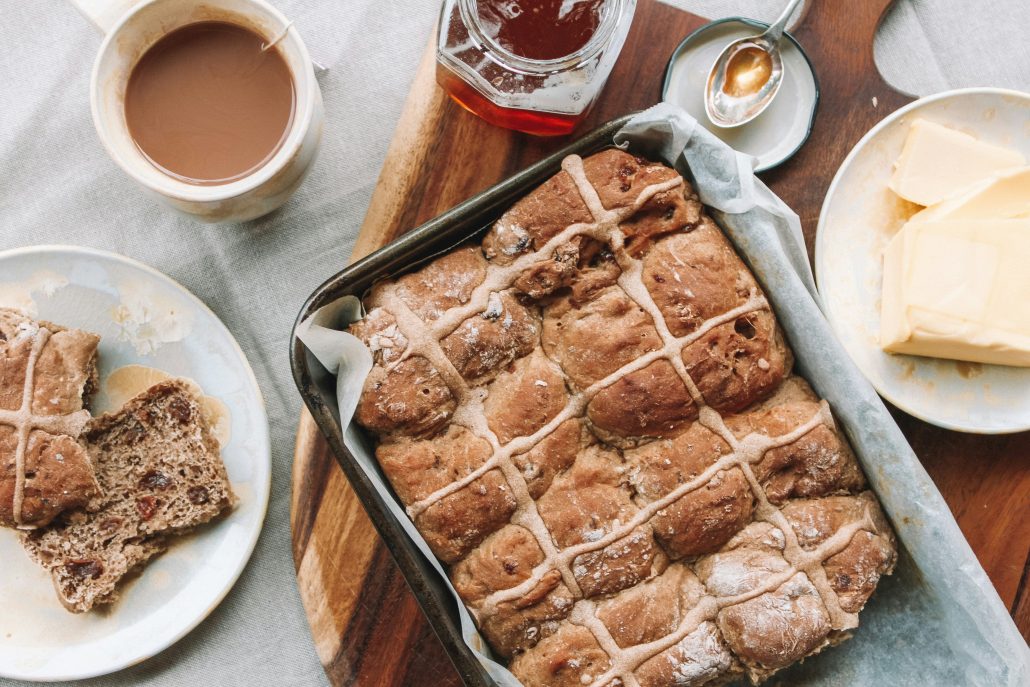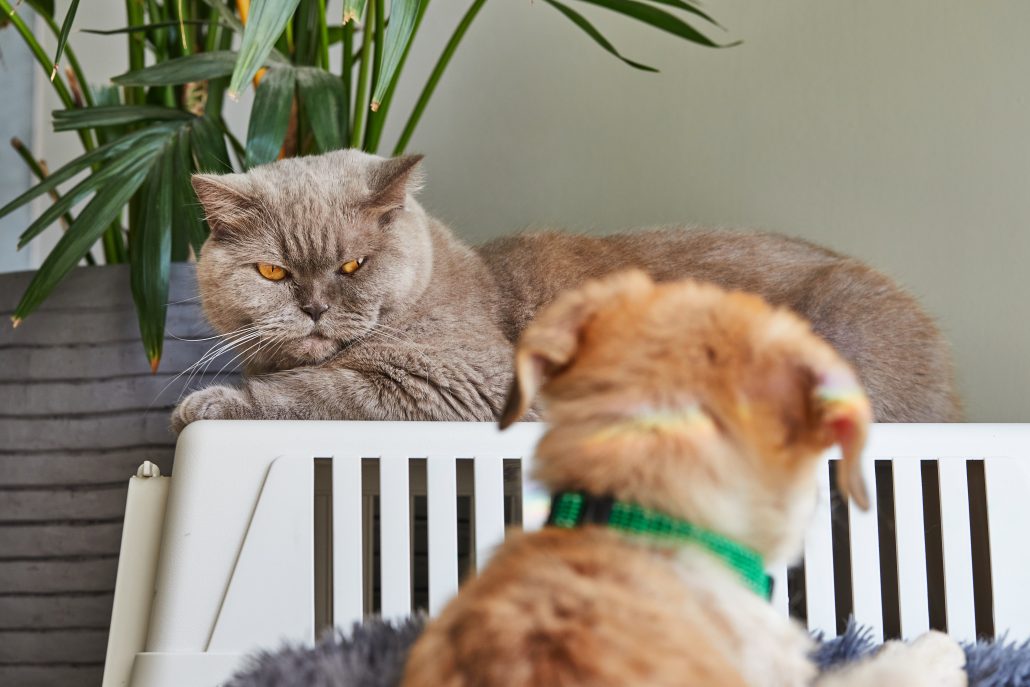
Easter is around the corner, and while most pet owners are aware of the dangers of chocolate to pets there is another seemingly innocent Easter treat that poses a significant risk to our furry friends: hot cross buns.
Whether loaded with raisins, chocolate or the plain variety, hot cross buns can spell trouble for pets if ingested. In this post we outline why this traditional snack is best kept well away from our four-legged members of the family.
Why Are Hot Cross Buns Dangerous?
Hot cross buns are a quintessential part of many Easter celebrations. These treats are made from a soft, enriched dough infused with fragrant spices such as cinnamon, nutmeg, and sometimes cloves. Traditionally, they contain dried fruits like currants, raisins, or sultanas and can be glazed with a sugary icing or syrup after baking.
Sounds delicious, right? For humans, they can be! But many of these ingredients can be incredibly dangerous for dogs and cats alike. Sultanas, raisins and currants are extremely poisonous to dogs. While it is not fully understood why, many pets develop vomiting, diarrhoea, abdominal pain and even kidney failure after ingesting these fruits.
Today, we see many variants of this Easter food. In hot cross buns that don’t contain dried fruit, many will contain chocolate, instead, which is also a known toxin for dogs. Even the plain hot cross buns can be very high in sugar which is just as bad for your pet’s teeth, and may upset your dog’s stomach resulting in vomiting or diarrhoea.

How Do I Know If My Pet Has Eaten A Hot Cross Bun?
Symptoms of hot cross bun ingestion will typically manifest 6 to 24 hours. However, kidney failure can develop days later, making it crucial to be vigilant for any signs of distress or illness.
- Vomiting shortly after consuming the bun
- Diarrhea and runny stools
- Abdominal discomfort
If you have noticed any of these symptoms in your pet, it’s essential to monitor them closely for further signs of distress. Additionally, keep an eye out for:
- Excessive thirst
- Increased urination
- Refusal to drink or eat
- Lethargy or weakness
- Absence of urination for a prolonged period (more than 24 hours)
If your pet displays any of these symptoms and you suspect they may have eaten something they should not have, it is important to see your local emergency vet as soon as possible. You vet will be able to diagnose, treat and manage your pet’s condition. Remember, never hesitate to seek professional veterinary care if you have any concerns about your pet’s health and well-being!
Treating Your Pet
- The veterinarian will initiate treatment by inducing emesis (induced vomiting) to bring up any ingested fruit before it can be digested and absorbed.
- Intravenous fluids will be administered to support the kidneys, mitigate the risk of kidney injury, and maintain adequate hydration levels, especially if your pet experiences significant fluid losses through vomiting or diarrhea.
- Activated charcoal may be administered once vomiting has ceased. This highly absorbent substance helps to bind any remaining fruit residue in the stomach, preventing its absorption into the body.

Ensuring a Hoppy and Safe Easter for Your Furry Friends!
The dangers posed by seemingly harmless treats like hot cross buns serve as a stark reminder of the need for vigilance and proactive pet care. By understanding the risks associated with hot cross bun ingestion and recognizing the signs of distress in our pets, we can ensure they stay happy and healthy!
In the event of an emergency, don’t hesitate to call The House Call Vet ur experienced team of veterinarians is available to provide immediate assistance and expert care for your furry companions. Your pet’s well-being is our priority, and we’re here to support you every step of the way. Reach out to us whenever you need assistance – we’re just a phone call away!

